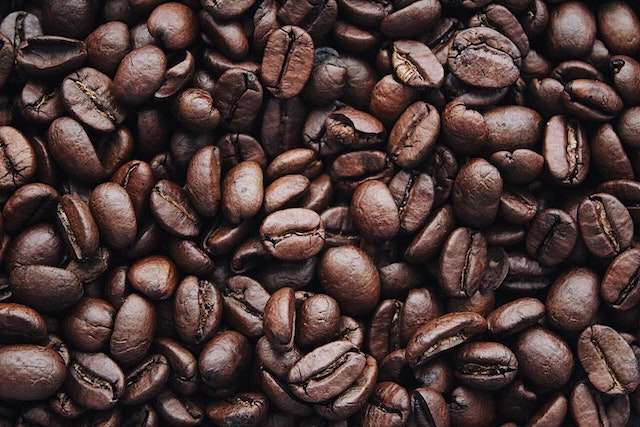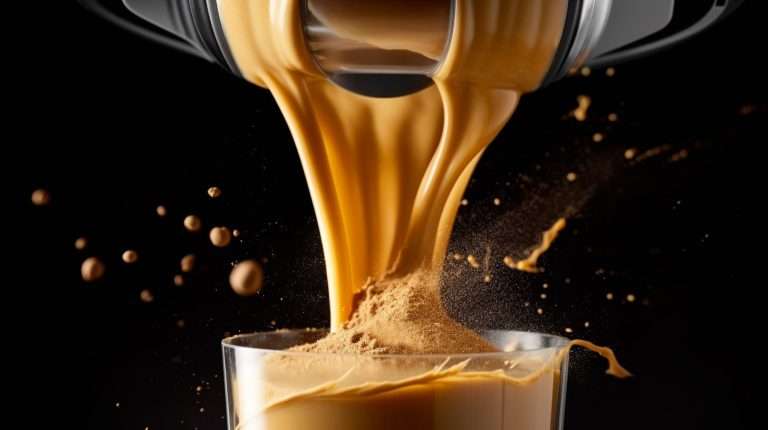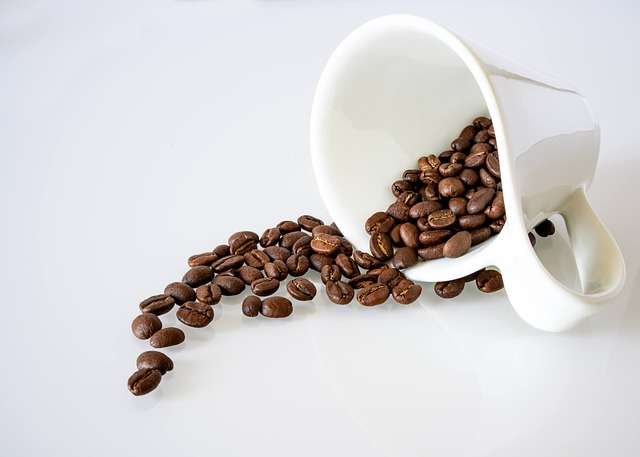How Many Calories in Coffee with Milk and Sugar: A Comprehensive Guide
Introduction
If you’re like many Americans whose day doesn’t start without a cup of coffee, understanding the caloric implications of that delightful morning brew can be crucial to maintaining a healthy diet. In this guide, we delve into everything you need to know about the calorie content in your coffee.

Understanding Calories in Coffee
Calories serve as a measure of the energy we derive from the foods and beverages we consume. Essentially, they are the fuel our bodies use to perform everything from basic biological functions to high-intensity physical activities.
In the world of beverages, coffee holds a unique position. A staple in many cultures, coffee is loved not just for its rich flavors and aroma, but also for the caffeine kick it provides. However, when it comes to calorie content, not all coffee is created equal.
In its most basic form – black coffee – is virtually calorie-free. A standard cup of black coffee, which is about 8 ounces or 240 milliliters, contains only 2 calories, and zero grams of fat, carbohydrates, or protein. Therefore, if you’re conscious about your calorie intake and want to enjoy coffee without guilt, black coffee can be an excellent choice.
Here’s a comprehensive guide on how to make black coffee for weight loss.

That being said, it’s important to remember that the story changes once we start adding other ingredients into the mix. Milk, sugar, cream, and flavorings not only enhance the taste and texture of coffee but also contribute additional calories. Depending on the quantity and type of these ‘extras’ used, the calorie content of your coffee can increase significantly, which we’ll discuss in the following sections.
Thus, understanding the calories in coffee isn’t as simple as it may first appear. We need to consider all the elements that go into our favorite cup to fully comprehend its caloric implications.
Calories in Coffee with Milk and Sugar
A cup of coffee with milk and sugar can contain anywhere from 30 to 60 calories depending on the milk type and amount of sugar used. Several factors affect the calorie count of this classic brew:
- Type of Milk: Whole milk adds more calories compared to skimmed milk.
- Quantity of Sugar: Each teaspoon of sugar contributes approximately 16 calories.
- Add-ons: Cream, flavored syrups, and whipped cream can significantly increase the calorie content.

Comparison of Calorie Content in Different Types of Coffee
Here’s a breakdown of the average caloric content of various types of coffee:
| Type of Coffee | Approximate Calories |
|---|---|
| Black coffee | 0 |
| Coffee with milk and two teaspoons sugar | 30-60 |
| Large coffee with double milk and double sugar | 120 |
| Iced coffee with skimmed milk and sugar | 100-120 |
| Instant coffee with milk and one sugar | 20-50 |
| Coffee with milk and sugar (small) | 20-50 |
| Cappuccino | 100-150 |
| Mocha | 200+ |
Keep in mind, these figures can vary based on serving size and the specific amounts of milk, sugar, and any extras used.
Low-Calorie Coffee Options
Looking for coffee options that are kinder to your waistline? Here are some tips:
- Swap whole milk with skimmed milk or non-dairy alternatives like almond milk.
- Reduce or eliminate sugar. If you must, opt for low-calorie natural sweeteners like stevia.
- Skip high-calorie extras like whipped cream and flavored syrups.
Nutritional Impact of Coffee
Despite its calorie content, coffee is packed with antioxidants and provides small amounts of essential nutrients like vitamins B2, B3, and B5.
Healthy Coffee Consumption Habits
Healthy coffee consumption habits can turn your daily caffeine fix into a beneficial dietary component:
- Monitor Serving Sizes: Stick to the recommended caffeine intake of up to 400mg per day.
- Mind Your Timing: Best times to drink coffee align with peak cortisol levels, typically from 9-11:30 AM and 1:30-5 PM.
Alternatives to Sugar in Coffee
Consider these healthier alternatives to sugar:
- Stevia: This is a zero-calorie natural sweetener that is derived from the leaves of the Stevia rebaudiana plant. It is up to 450 times sweeter than sugar and has been shown in some studies to help prevent weight gain and reduce blood sugar levels.
- Cinnamon: Not only does this spice add a unique flavor to your dishes, but it may also help reduce blood sugar levels. Cinnamon is rich in antioxidants and has anti-inflammatory properties, making it a healthy addition to your diet.
- Erythritol: This is a low-calorie sugar alcohol that tastes very similar to sugar. It is naturally found in fruits and vegetables and is often used as a sugar alternative. Erythritol contains just 0.2 calories per gram and does not significantly affect blood sugar levels, making it a good choice for those with diabetes.
- Monk Fruit Sweetener: Derived from the Siraitia grosvenorii plant native to China, monk fruit sweetener is about 300 times sweeter than table sugar but contains no calories. It does not affect blood sugar levels and may promote weight loss if used in place of regular sugar.
- Allulose: This is a monosaccharide (or sugar) that exists naturally in certain fruits. It has 70% of the sweetness of table sugar and provides just 0.2 calories per gram. Allulose closely mimics the taste of regular sugar and may help reduce blood sugar and insulin levels in people with and without diabetes.
- Dates: These are the dried fruits of the date palm tree. They are high in calories and natural sugars, but studies note that they don’t significantly affect blood sugar levels like table sugar does. Dates are also a good source of nutrients, including fiber, potassium, magnesium, manganese, vitamin B6, and antioxidants.
- Yacon Syrup: Extracted from the yacon plant native to South America, yacon syrup is rich in fructooligosaccharides, a type of sugar molecule that your body can’t digest. It contains one-third of the calories of regular sugar and may offer health benefits such as increasing feelings of fullness.
- Honey: This is a thick, golden liquid produced by honeybees. It contains trace amounts of vitamins and minerals, as well as an abundance of plant compounds that provide anti-inflammatory and antioxidant benefits.
- Maple Syrup: This is a thick, sugary liquid that’s made by cooking the sap of maple trees. It contains a small amount of minerals and is rich in phenolic compounds that may have anti-inflammatory and antioxidant effects.
- Molasses: This is a sweet, brown liquid with athick, syrup-like consistency. It’s made from boiling sugar cane or sugar beet juice. Molasses contains a handful of vitamins and minerals, as well as several antioxidants. It’s a good source of the minerals iron, potassium, and calcium, which are important for many aspects of health.
Remember, while these alternatives are generally healthier than refined sugar, they should still be consumed in moderation. Always consult with a healthcare provider or a nutritionist to understand what works best for your individual dietary needs.
Tracking Your Calorie Intake
Monitoring your daily calorie intake is easy with the right tools. Try using apps like MyFitnessPal to keep track of your dietary intake, including coffee.
Conclusion
Enjoying your beloved coffee doesn’t have to mean compromising your health goals. With mindful choices and a bit of knowledge, you can relish your coffee while keeping those extra calories at bay.

FAQs
Q: Can coffee help with weight loss?
A: Coffee can potentially aid in weight loss by boosting metabolism, but remember, it’s the additives that often carry high calories.
Q: Does brewing method affect the calorie content in coffee?
A: While the brewing method does not directly affect calorie content, using a paper filter can reduce coffee’s oil content, making it a healthier choice.
Q: How much calories in a cup of Coffee with Milk and 1 Sugar?
A: The calorie content will depend on the type of milk and amount of sugar used. On average, it could range from 50 to 100 calories.
Q: How many calories in a 12 oz cup of Coffee with Milk and Sugar?
A: Again, it depends on the kind and amount of milk and sugar used. A 12 oz cup might contain around 100 to 200 calories.
Q: How many calories in a coffee with 2 milk and 2 Sugar?
A: This depends on the volume of the milk and sugar added. Assuming “2 milk” and “2 sugar” refer to teaspoons, it could add up to around 70 to 120 calories.
Q: How many calories in a 10 oz coffee with Milk and Sugar?
A: A 10 oz cup of coffee with milk and sugar might contain around 80 to 160 calories, based on the type and amount of milk and sugar.
Q: How many calories should I eat to lose weight?
A: The specific calorie intake for weight loss varies based on factors like age, sex, weight, height, and physical activity level. It’s best to consult a dietitian or use a calorie calculator.
Q: How many calories a day to lose weight?
A: On average, a daily intake of 1500-1800 calories for men and 1200-1500 calories for women can lead to weight loss, but individual needs may vary.
Q: How many calories do I need to lose 2 pounds a week?
A: Generally, to lose one pound per week, you need to consume 500 calories less per day. So to lose 2 pounds per week, you’d need to cut out 1000 calories per day. Always consult a healthcare professional before starting a new diet.
Q: Will 1200 calories a day lose weight?
A: Consuming 1200 calories a day can lead to weight loss for some people, but it depends on the individual’s body, lifestyle, and nutritional needs.
Q: Is 1200 calories a day healthy to lose weight?
A: For some individuals, a 1200-calorie diet can be safe and effective, but for others, it might not provide enough nutrition. It’s important to consult with a dietitian or healthcare provider to ensure you’re meeting your nutritional needs while aiming for weight loss.
Stay mindful, stay healthy, and enjoy your coffee!
Please remember, the caloric content can vary. Always consult a dietitian or healthcare provider for personalized advice.







